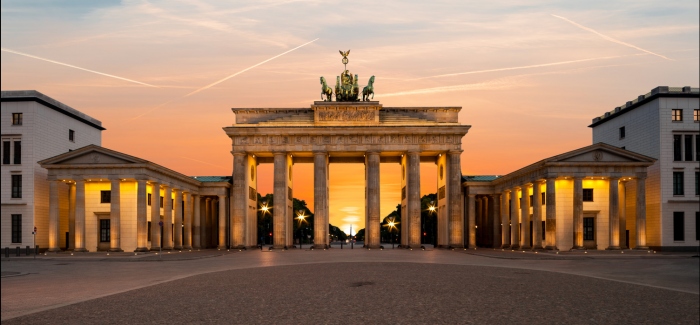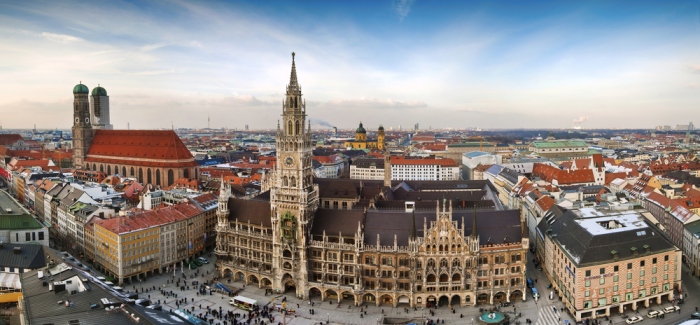Student visa questions answered, for all Indian students getting ready to study in Germany.
Its position as one of the world’s most robust economies and the business hub of Europe means that Germany is an attractive option for Indian students looking for a global career.
Famous for its leading position in research and science and technology, it is particularly popular with those aiming to work as engineers.
Its popularity has burgeoned in recent years due to its signing of the Bologna Process, and an increased propensity to offer courses in English. Here’s what you should know about getting a German student visa.
What type of visa do I need?
Indians staying in Germany for more than 90 days need a visa to enter the country – in the case of students, a student visa, or, if they are yet to secure a place, an applicant’s visa. Students are advised not to enter the country on a tourist visa since it cannot be converted into a residence permit once the student is in Germany.
To stay in Germany for longer than 90 days you will need to get a residence permit (before the 90 days is out).
In order to get one of these overseas students must be able to provide certificate of enrolment at the university they attend, proof they have registered with the authorities (as soon as students reach Germany, they must register with the local Aliens Department) and valid proof of sufficient finances and health insurance.
You will only need to prove you have finances for one year. The amount this is deemed to be is €8,640 a year in total (roughly INR 732,400)
A residence permit issued for the purpose of studying is valid for a maximum of two years. Students should take care to renew it well in time.
How much does it cost?
It costs only €25 (INR 1,649.41) to apply for a student visa. A Residence Permit costs €60 (INR 3,959.78).
How long does it take to process?
It can take between eight to 12 weeks for a visa to be processed. Prospective international students are advised to apply as soon as possible.
Can I work while I study?
Since Germany can be an expensive place to live, full-time international students are permitted to work for three months (90 working days or 180 half days) each year without any sort of work permit. Those enrolled on short-term language, or preparatory courses are not permitted to work.
Overseas students in Germany must be aware that if they are a DAAD (the German Academic Exchange Service) scholarship holder, they should first contact DAAD and get its permission before doing any paid work while studying.
Can I bring my family along while I study In Germany?
There’s no short answer to this question. Spouses, partners and/or children may be permitted to reside in Germany while you study, provided certain conditions are met. These conditions include having sufficient funds and living space. Cases are decided on an individual basis at the Germany embassy or consulate with which you’re dealing. It is advisable to discuss your situation at length with the consulate or embassy authorities to get a fair idea of where you stand.
Can I work after completing my degree?
Overseas students who have earned a degree from Germany will be granted a residence permit for one year, in which they can attempt to secure a job relevant to their discipline. If you successfully find a job before the lapse of this one year time period, you can then apply for a residence permit with a work permit from your local Aliens Department.
What about opportunities to immigrate?
In order to permanently reside in Germany, you will need a Settlement Permit or a Permanent Residence Title with permission to work in Germany. You are eligible to immigrate if you have lived in the country on a residence permit for a minimum of five years, have sufficient living space (for yourself and your family members, if any). You must also have contributed to the pension insurance fund for at least 60 months and be proficient in German.
Bear in mind…
• Avoid handing over original documents along with your visa application. Certified photocopies are a better option.
• It is compulsory for all visa applicants to be personally present at the German Embassy when the application is being filed.
Useful contacts
The German Embassy in New Delhi
No. 6/50G, Shanti Path, Chanakyapuri, New Delhi 110021
Postal address: Embassy of the Federal Republic of Germany
P.O. Box 613, New Delhi-110001.
Telephone: (0091-11) 44199 199
Fax: (0091-11) 2687 31 17
Web: www.new-delhi.diplo.de
The German Consulate General in Kolkata
Consulate General of the Federal Republic of Germany,
1 Hastings Park Road, Alipore
Kolkata-700 027
Telephone: +91-(0)33-2479 1141/ 1142/ 2150, 2439 8906
Fax: +91-(0)33-2479 3028
Web: www.kalkutta.diplo.de
The German Consulate General in Chennai
Consulate General of the Federal Republic of Germany
No. 9 Boat Club Road, P.O. Box 3110
RA Puram - Chennai 600 028
Telephone: (+91-44) 2430 1600
Fax : (+91-44) 2434 9293
Fax : (+91-44) 2434 9495 Visa and Consular Section
Web: www.chennai.diplo.de
The German Consulate General in Bangalore
German Consulate General of the Federal Republic of Germany
P.O.Box 5126, Bangalore 560 001
Tel: +91-80-4147 0254, 41470255
Fax: +91-80-4147 0256
Web: www.bangalore.diplo.de
The Honorary Consul of the Federal Republic of Germany in Goa
Mrs. Cecilia Menezes
Honorary Consul of The Federal Republic of Germany
Cosme Matias Menezes Ltd., Rua de Qurem
Panjim, Goa 403 001
Telephone: (0091) 0832 2235526
Fax: (0091) 0832 2223441
Mail: goa@hk-diplo.de

